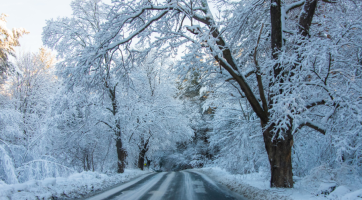What the Media Misses When It Sees Appalachia as Just ‘Trump Country’
It's fashionable to note that Appalachia voted overwhelmingly for Trump—and to predict political karma since he's proposed massive funding cuts that will affect the region. But people in Appalachia have a long history of community organizing bolstered by federal monies and their own capacity to offer solutions to their problems.
After the release of President Trump’s budget blueprint, media coverage of Appalachia and its reliance on federal aid has surged.
For example, reporters at the Washington Post, the New York Times, and other mainstream publications have argued that the Appalachian Regional Commission (ARC) has been a regional “lifeline,” funneling millions into job training programs and infrastructure development. Trump’s budget proposes its elimination. Following a trend set during the presidential campaign, many reporters never fail to locate a Trump supporter whose social services are now in jeopardy. This signals to the reader that people in Appalachia acted against their own interests when 90 percent of the region’s counties voted for Trump.
Such articles reinforce an argument that has been making the rounds of the punditry: Appalachia is a “taker region” that offers little in return. These voters made their choice, wrote Frank Rich in New York Magazine, and now they must live with—and deserve to suffer under—the havoc Trump wreaks. According to Kevin Baker, writing in the New Republic, “The people of Trump Country, like so much of white America, long for a past that never was, and a future that cannot be. A past cleansed of conflict, where a big, paternalistic company gave them nice things if they worked hard.” From the environmental ravages of the coal industry to the potential social costs of a Trump administration, Trump Country has allowed “itself to be reduced,” according to Baker.
Bestselling Hillbilly Elegy author and media favorite J.D. Vance has made a name for himself as a conservative who understands what ails Appalachia. But like his liberal counterparts, he places blame on voters chasing delusions. During the presidential election, he chided his Appalachian and Rust Belt friends and neighbors for supporting Trump. He characterized Trump as “cultural heroin”—a metaphor that simultaneously references and downplays the opioid crisis playing out in Appalachia: “He makes some feel better for a bit. But he cannot fix what ails them, and one day they’ll realize it.” But his ideology is right in line with Trump’s slim budget: “There is no government that can fix these problems for us,” he writes in his memoir.

